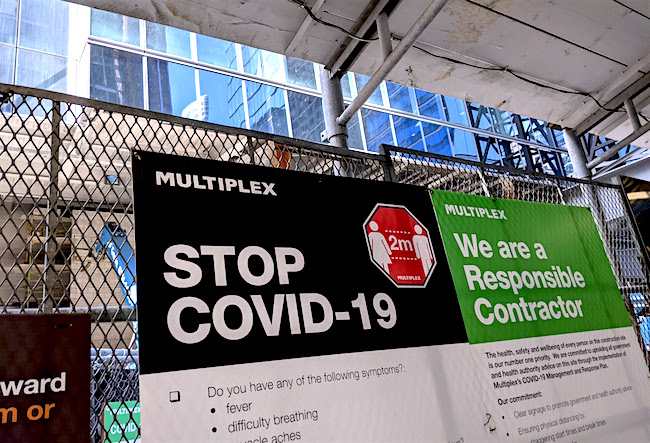
Ontario shuts non-essential construction as COVID-19 case counts hit record
By David Kennedy
Construction Health & Safety
The so-called third wave of COVID-19 has led to rising case counts across Ontario, though all job sites have been permitted to remain open, until now
The Ontario government is extending its stay-at-home order to a total of six weeks and tightening restrictions on individuals and businesses in response to record COVID-19 case counts.
Non-essential construction projects throughout Ontario will be forced to close April 17 at 12:01 a.m. as part of the latest order under the province’s emergency act.
“We’re losing the battle between the variants and vaccines,” Premier Doug Ford said in a press conference April 16, adding that further measures are required to stop rising COVID infections.
Along with shutting non-essential construction, big box retail stores will be forced to scale back indoor capacity to 25 per cent, outdoor gatherings will be limited to households only and outdoor recreational areas such as basketball courts will be closed. Police will also be given sweeping new power to enforce the public health orders, such as the ability to stop vehicles to ensure drivers are out only for essential purposes.
The new restrictions come as Ontario’s science advisers pushed for a six-week stay-at-home order and a more focused vaccination strategy. Earlier in the day, Ontario reported 4,812 new cases of COVID-19, and the advisors warned infections in the province could rise to 15,000 per day if stricter measures were not put in place. Taking a more targeted approach to vaccination — to address what Ford referred to as “the inferno” — Ontario will also increase its vaccine supply to hot spot zones by 25 per cent.
Despite increasingly stringent measures enacted across the province over the past month, until now, all Ontario construction sites have been allowed to remain open.
During the Friday announcement, Monte McNaughton, minister of Labour, Training and Skills Development (MOL), pointed to the construction of homes, hospitals, assessment centres and long-term care as essential. He said work on shopping malls, hotels and office towers has been deemed non-essential.
Further details show a long list of exemptions.
Construction and demolition related to health care and long-term care are allowed to continue, as is work on city and provincial infrastructure; electricity-related projects; school projects; PPE, food, beverage and agricultural manufacturing or distribution projects; and internet infrastructure projects.
All residential construction, including work on affordable housing is permitted. Additionally, the province has deemed services related to residential construction as essential. Both new and ongoing renovations, as well as adjacent services, such as painting, are allowed, a MOL spokesperson confirmed. Pool construction, fence installations and other residential property upgrades are also permitted.
Construction that started prior to April 17 on new warehousing, IT and petrochemical projects can proceed, along with industrial retrofit work already underway.
Site preparation for all institutional, commercial and industrial (ICI) construction has been deemed essential as well, though not work on the latter stages of these projects, unless they meet one of the criteria above. Finally, work tied to preparing non-essential sites for temporary closure is permitted.
Certain property services not directly linked to construction, such as landscaping, maintenance and swimming pool services remain exempt under the latest orders and can continue.
The complete list of essential exemptions for the changes enacted at 12:01 a.m. April 17 are available here.




